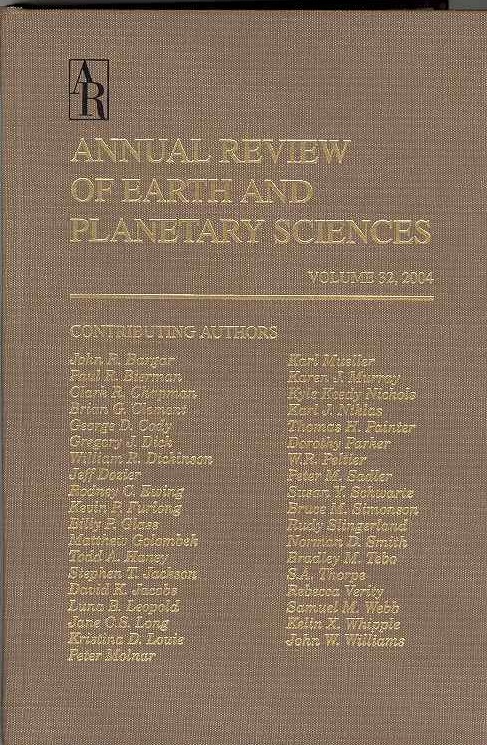Grain Size in Landscapes
IF 13
1区 地球科学
Q1 ASTRONOMY & ASTROPHYSICS
Annual Review of Earth and Planetary Sciences
Pub Date : 2024-04-10
DOI:10.1146/annurev-earth-052623-075856
引用次数: 0
Abstract
Earth's terrestrial topography evolves in response to the interaction of tectonics, climate, and lithology. Recent discoveries suggest that the grain size of sediments produced on hillslopes and transported through river networks is key to understanding these interactions. Hillslope grain size varies systematically with erosion rate and residence time, the degree of chemical and physical weathering, and the fracture density and susceptibility to weathering of rock. Variations in initial grain size strongly influence the spatial evolution of grain size distributions as particles mix and wear during downstream transport through channel networks. In rivers, the size and flux of the coarse fraction of the sediment load control the rate of incision into bedrock and thus govern channel slope and ultimately the relief of actively eroding landscapes. These relationships suggest that a primary way that tectonics, climate, and lithology influence landscape evolution is through their controls on sediment grain size.景观中的粒度
地球的陆地地形在构造、气候和岩性的相互作用下不断演变。最新发现表明,山坡上产生并通过河网输送的沉积物的粒度是了解这些相互作用的关键。山坡沉积物的粒度随侵蚀速度和停留时间、化学和物理风化程度以及岩石的断裂密度和易风化性而发生系统性变化。初始粒度的变化会对粒度分布的空间演化产生强烈影响,因为颗粒在通过河道网络向下游输送的过程中会发生混合和磨损。在河流中,沉积物负荷中粗颗粒的大小和通量控制着向基岩切入的速度,从而控制着河道坡度,并最终控制着积极侵蚀地貌的起伏。这些关系表明,构造、气候和岩性影响地貌演变的主要方式是通过它们对沉积物粒度的控制。 最新研究揭示了沉积物粒度在控制基岩河流形态动力学中的核心作用,将粒度与河道坡度和地形起伏联系起来。 构造、气候和岩性控制着山坡上产生的沉积物的大小;因此,粒度介导着它们对地貌演化的影响。 将沉积物粒度、地形、风化、侵蚀和沉积物迁移联系起来的反馈作用为地球表面科学的进步提供了新的机遇。
本文章由计算机程序翻译,如有差异,请以英文原文为准。
求助全文
约1分钟内获得全文
求助全文
来源期刊

Annual Review of Earth and Planetary Sciences
地学天文-地球科学综合
CiteScore
25.10
自引率
0.00%
发文量
25
期刊介绍:
Since its establishment in 1973, the Annual Review of Earth and Planetary Sciences has been dedicated to providing comprehensive coverage of advancements in the field. This esteemed publication examines various aspects of earth and planetary sciences, encompassing climate, environment, geological hazards, planet formation, and the evolution of life. To ensure wider accessibility, the latest volume of the journal has transitioned from a gated model to open access through the Subscribe to Open program by Annual Reviews. Consequently, all articles published in this volume are now available under the Creative Commons Attribution (CC BY) license.
 求助内容:
求助内容: 应助结果提醒方式:
应助结果提醒方式:


